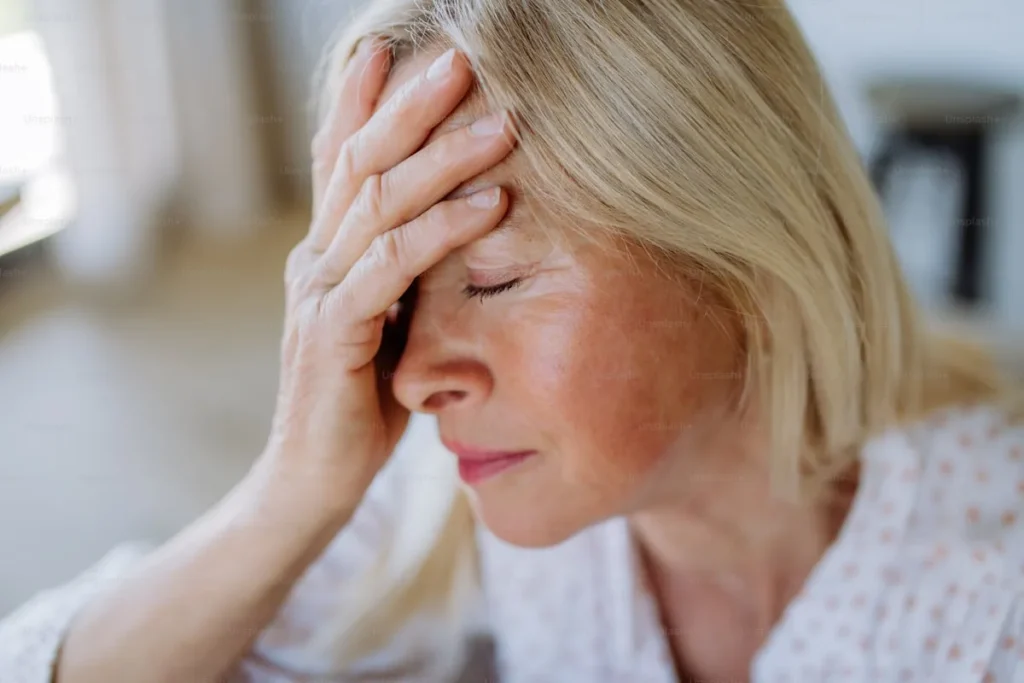Menopause is a natural phase in a woman’s life that marks the end of her reproductive years. It typically occurs in women in their late 40s or early 50s and is characterized by a range of symptoms, including hot flashes, night sweats, mood swings, and fatigue. Menopause fatigue is a common complaint among women going through this stage, and it can have a significant impact on their quality of life. In this article, we will explore five effective remedies for menopause fatigue that you can try to help alleviate this symptom and improve your overall well-being.
1. Hormone Replacement Therapy (HRT)
Hormone replacement therapy (HRT) is a treatment option that involves taking estrogen and sometimes progesterone to help alleviate the symptoms of menopause, including fatigue. Estrogen levels decrease during menopause, which can lead to fatigue and other symptoms. By replacing these hormones, HRT can help restore hormonal balance and reduce fatigue.
HRT is available in various forms, including pills, patches, creams, and gels. Your doctor will work with you to determine the best form and dosage of hormone replacement therapy for your individual needs. It is essential to discuss the risks and benefits of HRT with your healthcare provider before starting treatment, as it may not be suitable for everyone.
2. Exercise
Regular exercise is an effective way to combat menopause fatigue and improve your overall health and well-being. Exercise can help boost your energy levels, improve your mood, and reduce stress and anxiety, all of which can contribute to fatigue during menopause.
Aim to incorporate a mix of aerobic exercise, strength training, and flexibility exercises into your routine. Walking, cycling, swimming, and yoga are all excellent options for women going through menopause. Start slowly and gradually increase the intensity and duration of your workouts as your fitness level improves.
3. Healthy Diet
Eating a well-balanced diet rich in fruits, vegetables, whole grains, lean proteins, and healthy fats can help combat menopause fatigue and support your overall health. Foods high in sugar, caffeine, and processed ingredients can contribute to fatigue and worsen menopausal symptoms.
Include plenty of energy-boosting foods in your diet, such as nuts, seeds, whole grains, and lean proteins. Stay hydrated by drinking plenty of water throughout the day, as dehydration can also contribute to fatigue. Limit your intake of caffeine and alcohol, as these substances can disrupt your sleep and energy levels.
4. Stress Management
Chronic stress can contribute to menopause fatigue and worsen other menopausal symptoms, such as hot flashes and mood swings. Finding healthy ways to manage stress can help improve your energy levels and overall well-being during this stage of life.
Practice relaxation techniques such as deep breathing, meditation, yoga, or tai chi to help reduce stress and promote relaxation. Engage in activities that bring you joy and relaxation, such as reading, gardening, listening to music, or spending time with loved ones. Consider seeking support from a therapist or counselor if you are struggling to cope with stress during menopause.
5. Quality Sleep
Sleep disturbances are common during menopause and can contribute to fatigue and other symptoms. Prioritizing quality sleep is essential for managing menopause fatigue and promoting overall health and well-being.
Create a relaxing bedtime routine to help signal to your body that it is time to sleep. Avoid stimulating activities, such as watching TV or using electronic devices, in the hour leading up to bedtime. Keep your bedroom cool, dark, and quiet to promote restful sleep. If you are experiencing severe sleep disturbances, consider speaking with your doctor about potential treatment options, such as sleep aids or cognitive-behavioral therapy for insomnia.
FAQs
Q: Can menopause fatigue be a sign of a more serious health condition?
A: Menopause fatigue is a common symptom experienced by many women during this stage of life and is usually a result of hormonal changes and other menopausal symptoms. However, if you are experiencing severe or persistent fatigue, it is essential to speak with your healthcare provider to rule out any underlying health conditions, such as thyroid disorders or anemia, that may be contributing to your symptoms.
Q: Are there any natural remedies for menopause fatigue that I can try?
A: In addition to the remedies mentioned in this article, there are several natural remedies that you can try to help alleviate menopause fatigue. These include herbal supplements such as black cohosh, evening primrose oil, and red clover, as well as lifestyle changes such as stress management techniques, acupuncture, and massage therapy. It is essential to speak with your healthcare provider before trying any new remedies to ensure they are safe and appropriate for your individual needs.
Q: How long does menopause fatigue typically last?
A: Menopause fatigue can vary in duration and severity from woman to woman. For some women, fatigue may be a temporary symptom that improves with lifestyle changes and treatment options. For others, fatigue may persist for several years after menopause. It is essential to work with your healthcare provider to develop a personalized treatment plan to help manage your symptoms and improve your quality of life during this stage of life.
In conclusion, menopause fatigue is a common symptom experienced by many women during this stage of life, but it can be effectively managed with the right treatment options and lifestyle changes. By incorporating hormone replacement therapy, regular exercise, a healthy diet, stress management techniques, and quality sleep into your routine, you can help alleviate fatigue and improve your overall well-being during menopause. If you are struggling with menopause fatigue, speak with your healthcare provider to develop a personalized treatment plan that meets your individual needs and helps you feel your best during this stage of life.


